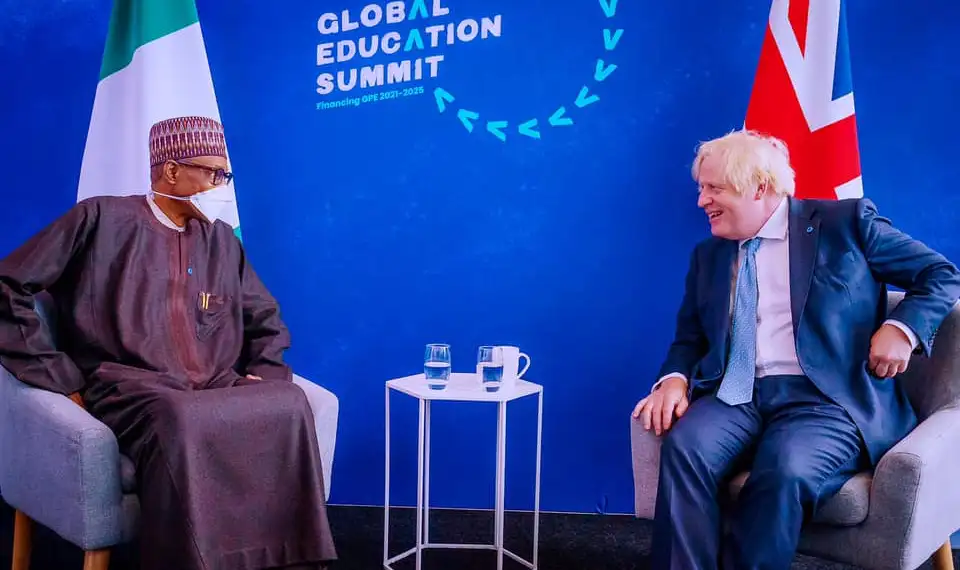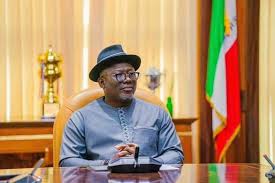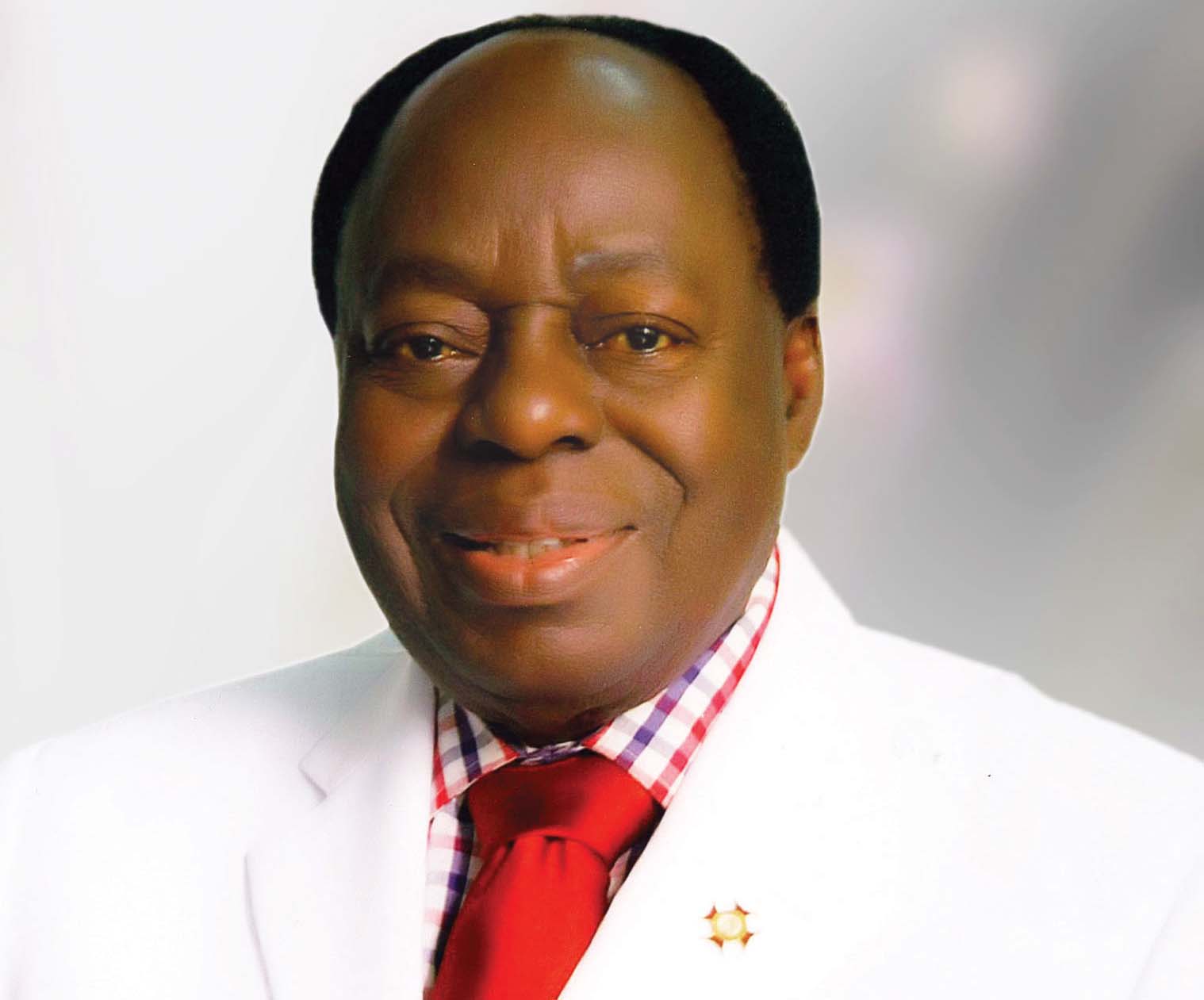Headlines
No 3rd Term for Me, First Person Who Tried It Didn’t End Well- Buhari told Johnson

President Muhammadu Buhari, on Thursday, reassured Nigerians and the world that he would not stay in office a day longer than May 29, 2023, when his second and final term as president will end. Buhari spoke in Kigali, Rwanda, during the 26th edition of the Commonwealth Heads of Government Meeting (CHOGM), a biennial gathering of Commonwealth countries hosted by different member countries on a rotating basis.
The Nigerian president told British Prime Minister Boris Johnson, on the sidelines of the conference, that the first person, who tried to extend his tenure – an apparent reference to former President Olusegun Obasanjo – did not end well.
Buhari welcomed the British government’s security assistance to Nigeria, but said a good way to start was for the United Kingdom to first stabilise Libya.
The fall of the Libyan leader, Muammar Gadaffi, in 2011, after 42 years in power, in an uprising that threw the country into a protracted civil war, has been blamed for the crisis in the Sahel, which has had terrible implications for Nigeria’s security.
Buhari justified the continued detention of the leader of the proscribed Indigenous Peoples of Biafra (IPOB), Nnamdi Kanu. He said Kanu had jumped bail in the past, which made his bail this time difficult.
The president visited the Kigali Genocide Memorial in Rwanda, toured the permanent exhibitions at the Memorial, and laid a wreath at the mass graves, where more than 250,000 victims of the genocide were buried.
He made a passionate appeal to Nigerians to be tolerant of one another and embrace peace.
Buhari, who also met with the Jamaican Prime Minister, Andrew Holness, in Kigali, extolled the cordial political and economic relations between Nigeria and Jamaica.
A release by Buhari’s media adviser, Femi Adesina, said at the meeting with Johnson, the Nigerian president reiterated his resolve to respect the maximum term limit in the Nigerian constitution.
Johnson had asked if Buhari would run for office again, perhaps, unfamiliar with the country’s democratic system, but the Nigerian leader immediately retorted, “Another term for me? No! The first person who tried it didn’t end very well.”
Obasanjo had towards the end of his second term in 2007 attempted to seek a third term in office but met stiff resistance at the National Assembly. The federal legislature threw away the clause that sought to give a sitting president the right to seek a third term. But the former president has always denied having anything to do with the idea.
Addressing speculations that Kanu was not being allowed to see his lawyers privately, the president dispelled such insinuations, saying the detained separatist is being given every opportunity under the law “to justify all the uncomplimentary things he had been saying against Nigeria in Britain.
“He felt very safe in Britain, and said awful things against Nigeria. We eventually got him, when he stepped out of the United Kingdom, and we sent him to court. Let him defend all that he has said there. His lawyers have access to him. Remember he jumped bail before, how are we sure he won’t do it again, if he’s admitted to bail?”
On the British prime minister’s keenness to help Nigeria in the area of security, Buhari said helping to stabilise Libya would be a pragmatic and strategic first step to the deployment of such assistance.
The fall of Ghaddafi, with the active involvement of Britain, the United States, and France, unleashed armed groups on countries of the Sahel. “And they are causing havoc everywhere, as the only thing they know how to do is to shoot guns,” Buhari told Johnson.
Giving an update on Boko Haram insurgency, Buhari said there was a serious effort to educate the people on the fact that only an unserious person could kill innocent people, “and say Allah Akbar (God is Great).
“God is justice. You can’t take innocent souls, and ascribe it to God. And the education process is working, the people now understand Boko Haram as anti-God, and not about religion.”
On his part, Johnson said he was delighted to hear the good news on trade between Britain and Nigeria. He said the UK was further reducing tariffs on some goods going to Nigeria.
The prime minister described the relationship between Nigeria and the UK as “very strong attachment,” adding, “I just want to be sure that we are doing enough. It’s a massive partnership for us, and we need to capitalise on it.”
He offered condolences on some recent attacks in Nigeria, particularly, on churches.
Buhari paid tribute to the memory of the victims of the Rwanda genocide and prayed for healing for the survivors. He told newsmen that the lessons from his visit were the need for Nigerians to continue to be tolerant of one another, and for the country to also preserve its own historical antecedents from the Nigeria Civil War (1967-1970).
According to Buhari, “I went through all the experiences from 15 January 1966 to date. I was a governor, minister, and Head of State and went through detention. I returned to partisan politics and will finish my two terms as constitutionally allowed. We fought a 30-month bitter civil war and we killed about a million of each other. Nigeria went through this kind of terrible development process.”
Before departing the Memorial, Buhari wrote in the visitor’s book, “Remembering the victims of this dark history of the Rwanda Genocide, we pray that humanity will never experience this kind of hatred, wickedness and violence toward others, because of their ethnic background, religion, and beliefs.
“Nigeria is strongly committed to the prevention of mass atrocity anywhere in the world and believes that perpetrators of such crimes; and their enablers, anywhere in the world must be held accountable.”
At his meeting with the Jamaican Prime Minister, Holness, Buhari said, “Our relationship dates back in time, to generations ago. Thank you for strengthening it, particularly, on the economic and political fronts.”
Holness noted that Nigeria had been very supportive of Jamaica, with the two countries having commercial agreements in place.
He said, “The maiden flight from Lagos to Jamaica about two years ago was well received. We equally have relationships in the creative industry, sports and finance.”
Making reference to a recent opinion article written by Buhari, which was published in international newspapers, Holness said he agreed that the Commonwealth could be more than just a club of friends, who have affinity with the United Kingdom, “and become an economic powerhouse. All the elements are there: common language, large market, and many others. It can become a serious economic force.”
Headlines
Noble Ladies Champion Women’s Financial Independence at Grand Inauguration in Abuja

Women from diverse backgrounds across Nigeria and beyond gathered at the Art and Culture Auditorium, Abuja, for the inauguration and convention of the Noble Ladies Association. The event, led by the association’s Founder and “visionary and polished Queen Mother,” Mrs. Margaret Chigozie Mkpuma, was a colourful display of feminine elegance, empowerment, and ambition.
The highly anticipated gathering, attended by over 700 members and counting, reflected the association’s mission to help women realise their potential while shifting mindsets away from dependency and over-glamorization of the ‘white collar job.’ According to the group, progress can be better achieved through innovation and creativity. “When a woman is able to earn and blossom on her own she has no reason to look at herself as a second fiddle,” the association stated.
One of the association’s standout initiatives is its women-only investment platform, which currently offers a minimum entry of ₦100,000 with a return of ₦130,000 over 30 days—an interest rate of 30 percent. Some members invest as much as ₦1 million, enjoying the same return rate. Mrs. Mkpuma explained that the scheme focuses on women because “women bear the greater brunt of poverty” and the platform seeks “to offer equity in the absence of economic equality.”
Education is also central to the Noble Ladies’ mission, regardless of age. Their mantra, “start again from where you stopped,” encourages women to return to school or upgrade their skills at any stage in life. The association believes that financial stability is vital in protecting women from cultural practices that dispossess widows of their late husbands’ assets, while also enabling them to raise morally and socially grounded families.
Founded on the vision of enhancing women’s skills and achieving financial stability, the association rests on a value system that discourages pity and promotes purpose. “You have a purpose and you build on that purpose to achieve great potentials and emancipation,” Mrs. Mkpuma said.
A criminologist by training and entrepreneur by practice, she cautions against idleness while waiting for formal employment. “There are billions in the informal and non-formal sectors waiting to be made,” she said, rejecting the “new normal of begging” and urging people to “be more introspective to find their purpose in life and hold on to it.”
Mrs. Mkpuma’s management style keeps members actively engaged, focusing on vocational skills and training to prepare them for competitive markets. She is exploring “innovative integration of uncommon technologies” and is already in talks with international franchises to invest in Nigeria, with Noble Ladies as first beneficiaries.
The association’s core values include mutual respect, innovation, forward-thinking, equal opportunity, and financial emancipation. With plans underway to establish a secretariat in the heart of Abuja, the group aims to expand its impact.
The event drew high-profile guests, including former Inspector General of Police, Mike Okiro, and a host of VIPs, marking a significant milestone in the association’s drive for women’s empowerment.
Headlines
NEPZA, FCT agree to create world-class FTZ environment

The Nigeria Export Processing Zones Authority (NEPZA) has stepped in to resolve the dispute between the Federal Capital Territory Administration and the Abuja Technology Village (ATV), a licensed Free Trade Zone, over the potential revocation of the zone’s land title.
Dr. Olufemi Ogunyemi, the Managing Director of NEPZA, urged ATV operators and investors to withdraw the lawsuit filed against the FCT administration immediately to facilitate a roundtable negotiation.
Dr. Ogunyemi delivered the charge during a courtesy visit to the Minister of the Federal Capital Territory, Barrister Nyesom Wike, on Thursday in Abuja.
You will recall that the ATV operators responded to the revocation notice issued by the FCT administration with a lawsuit.
Dr. Ogunyemi stated that the continued support for the growth of the Free Trade Zones Scheme would benefit the nation’s economy and the FCT’s development, emphasizing that the FCT administration recognized the scheme’s potential to accelerate industrialisation.
Dr. Ogunyemi, also the Chief Executive Officer of NEPZA, expressed his delight at the steps taken by the FCT minister to expand the economic frontier of the FCT through the proposed Abuja City Walk (ACW) project.
Dr. Ogunyemi further explained that the Authority was preparing to assess all the 63 licensed Free Trade Zones across the country with the view to vetting their functionality and contributions to the nation’s Foreign Direct Investment and export drives.
“I have come to discuss with His Excellency, the Minister of the Federal Capital Territory on the importance of supporting the ATV to succeed while also promoting the development of the Abuja City Walk project. We must work together to achieve this for the good of our nation,” he said.
On his part, the FCT Minister reiterated his unflinching determination to work towards President Bola Ahmed Tinubu’s Renewed Hope Agenda by bringing FDI to the FCT.
“We must fulfil Mr. President’s promises regarding industrialization, trade, and investment. In this context, the FCT will collaborate with NEPZA to review the future of ATV, a zone that was sponsored and supported by the FCT administration,” Wike said.
Barrister Wike also said that efforts were underway to fast-track the industrialisation process of the territory with the construction of the Abuja City Walk.
The minister further said the Abuja City Walk project was planned to cover over 200 hectares in the Abuja Technology Village corridor along Airport Road.
According to him, the business ecosystem aimed to create a lively, mixed-use urban center with residential, commercial, retail, hospitality, medical, and institutional facilities.
He added that the ACW would turn out to be a high-definition and world-class project that would give this administration’s Renewed Hope Agenda true meaning in the North-Central Region of the country.
Barrister Wike also indicated his continued pursuit of land and property owners who failed to fulfil their obligations to the FCT in his determination to develop the territory.
Headlines
Benue IDPs block highway, demand return to ancestral homes

Vehicular movement along the Yelwata axis of the Benue–Nasarawa highway was brought to a standstill on Wednesday as Internally Displaced Persons, IDPs, staged a protest, demanding immediate return to their ancestral homes.
The protesters, believed to be victims of persistent attacks by suspected herdsmen, blocked both lanes of the busy highway for several hours, chanting “We want to go back home”.
The protest caused disruption, leaving hundreds of motorists and passengers stranded.
Eyewitnesses said the displaced persons, many of whom have spent years in overcrowded IDP camps, are expressing deep frustration over the government’s delay in restoring security to their communities.
“We have suffered enough. We want to return to our homes and farms,” one of the protesters told reporters at the scene.
Security personnel were reportedly deployed to monitor the situation and prevent any escalation, though tensions remained high as of press time.
Efforts to reach the Benue State Emergency Management Agency, SEMA, and other relevant authorities for comment were unsuccessful.
-

 Headlines4 years ago
Headlines4 years agoFacebook, Instagram Temporarily Allow Posts on Ukraine War Calling for Violence Against Invading Russians or Putin’s Death
-

 Headlines4 years ago
Headlines4 years agoNigeria, Other West African Countries Facing Worst Food Crisis in 10 Years, Aid Groups Say
-

 Foreign4 years ago
Foreign4 years agoNew York Consulate installs machines for 10-year passport
-

 News1 year ago
News1 year agoZero Trust Architecture in a Remote World: Securing the New Normal
-

 Entertainment3 years ago
Entertainment3 years agoPhyna emerges winner of Big Brother Naija Season 7
-

 Headlines2 years ago
Headlines2 years agoNigeria Customs modernisation project to check extortion of traders
-

 Entertainment2 years ago
Entertainment2 years agoMovie download platform, Netnaija, announces closure
-

 Economy2 years ago
Economy2 years agoWe generated N30.2 bn revenue in three months – Kano NCS Comptroller














